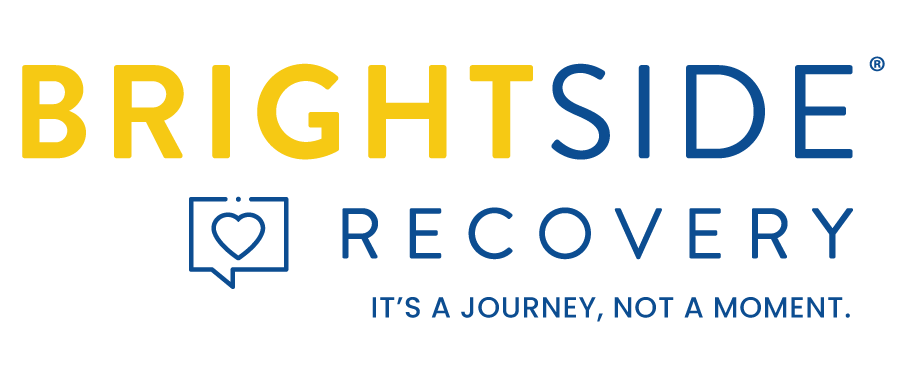

Outpatient Addiction Treatment
There are various situations where inpatient treatment may be best. For example, suppose you struggle with a severe addiction or an addiction that requires intensive detoxification services and monitoring. In that case, a residential setting may be the best place to begin your sobriety journey. Also, if you have completed an outpatient program before and experienced a relapse, it might be best to consider starting with inpatient treatment before “stepping down” to an outpatient program.
Outpatient treatment is a beneficial option if your substance use disorder is considered mild or if you have recently completed a more intensive inpatient or intensive outpatient program but do not feel ready to be “on your own” without the support and guidance of treatment professionals or peer support. If you are motivated to seek addiction treatment but cannot be away from obligations such as family, school, or work, outpatient substance abuse treatment in Chicago can offer the essential flexibility you need to ensure treatment is possible.
What's the Difference Between IOP & Outpatient?
Sometimes, there is an unfortunate misconception that can exist when people talk about outpatient addiction treatment. Some people may feel outpatient treatment isn’t as serious as inpatient treatment. The truth is outpatient and inpatient (or residential) programs both focus equally on helping you achieve sobriety using comprehensive, evidence-based treatment. However, given the different environments each offers their patients, they do have specific differences or pros and cons. Similarly, intensive outpatient programs or IOPs and traditional outpatient programs share many similar treatment methods.
Outpatient addiction treatment programs allow you to live at home while receiving potentially life-saving addiction treatment. Because outpatient programs are not required to provide day-to-day living arrangements, including housing, meals, and 24/7 therapy and medical support, they are often more affordable than inpatient programs. The structure of an outpatient program allows patients to continue active involvement in their regular routine while attending therapy on a set schedule, usually three to five days a week for a couple of hours each day. The number of hours you will attend therapy will depend on your needs and the intensity level of the outpatient treatment program.
Outpatient alcohol treatment in Chicago at Brightside Recovery is structured around your individual treatment needs, including the length and type of counseling sessions, how many sessions you will attend, and how long your program will last. Most outpatient programs last longer than residential programs, with some lasting three to six months and others lasting for a year or more. Due to the less intensive nature of the outpatient treatment model, it can sometimes take longer to achieve your treatment goals. Therapy sessions in an outpatient rehab program often consist of a combination of individual and group therapy counseling.
Intensive outpatient programs or IOPs fall between inpatient residential programs and outpatient programs. The key difference between a standard outpatient program and an intensive outpatient program is the required amount of time dedicated to treatment-related activities throughout the week. Many IOP programs in Chicago require twelve or more hours of treatment each week. This is often broken up into several hours per day each week. As noted above, outpatient programs require a smaller time commitment.
Intensive outpatient programs are an excellent choice if you need a higher level of care than an outpatient program can provide but do not need the around-the-clock care provided in a residential setting. Intensive outpatient programs are also extremely helpful for those who are transitioning from the residential care environment to an aftercare program or a fully independent living arrangement.
The Benefits of Our Outpatient Drug & Alcohol Rehab in Illinois
If you or a loved one have recently completed an inpatient treatment program or have a mild to moderate substance use disorder, an outpatient treatment program could help you access essential addiction treatment without disrupting your family or other day-to-day obligations. Our outpatient alcohol rehab in Illinois offers the same comprehensive, evidence-based treatment found in the residential setting. While participating in outpatient substance abuse or alcohol addiction treatment in Chicago, you will have the flexibility and freedom you need to successfully start and complete addiction treatment without having to leave family and loved ones behind for the duration of your rehab stay. Another benefit to our outpatient treatment program is the seamless transition into an aftercare program and our alumni programs.
Our guidance and support of your recovery journey do not end when you are discharged from the therapeutic portion of rehab. Aftercare and involvement with alumni programs are a vital part of ongoing recovery. Aftercare involves a variety of ongoing medical treatment and continuous addiction therapy. The outpatient drug and alcohol rehab Chicago at Brightside Recovery provides a smooth transition from ongoing scheduled addiction treatment to follow-up maintenance treatment provided in aftercare. Because you remain at home and in your community while completing an outpatient treatment program, you learn how to integrate what you’ve learned in treatment into your day-to-day life from the very beginning of your treatment program. This often makes transitioning back home and participating in aftercare programs significantly easier.
Outpatient Substance Abuse Treatment Near Chicago
Our outpatient program encourages you to continue in your daily life while progressing through addiction treatment. Our individual therapy sessions are scheduled based on your availability, ensuring your ability to actively participate. All of our group programs are scheduled in the evenings to ensure they do not conflict with your schedule during the day. You will meet with your therapist on an individual basis each week. The number and frequency of appointments depend on your unique treatment needs and goals. During therapy, you will learn coping skills, relapse prevention skills, and more about identifying relapse triggers.

